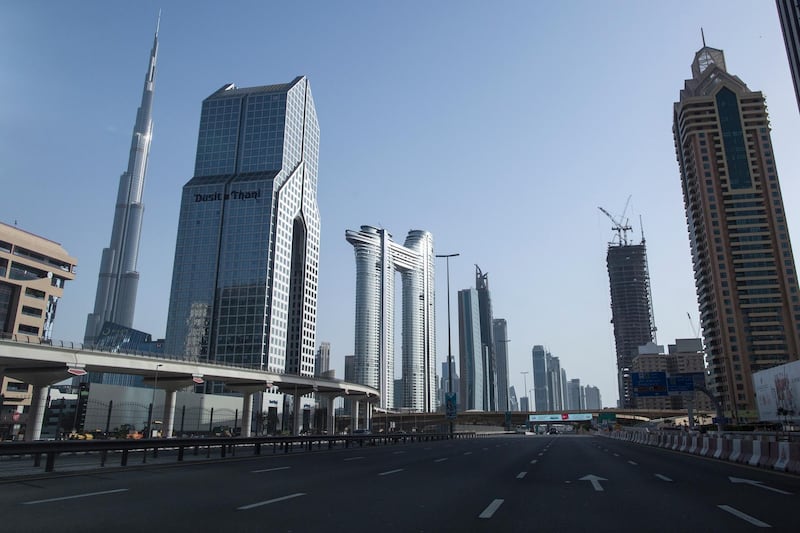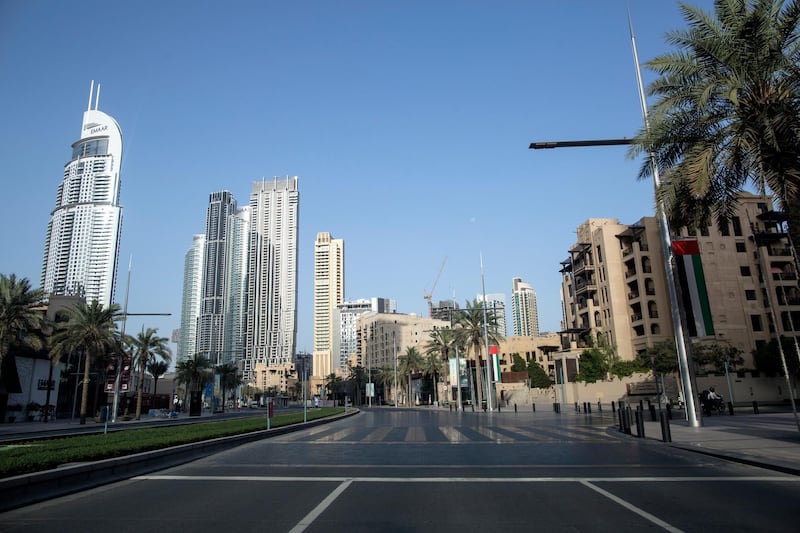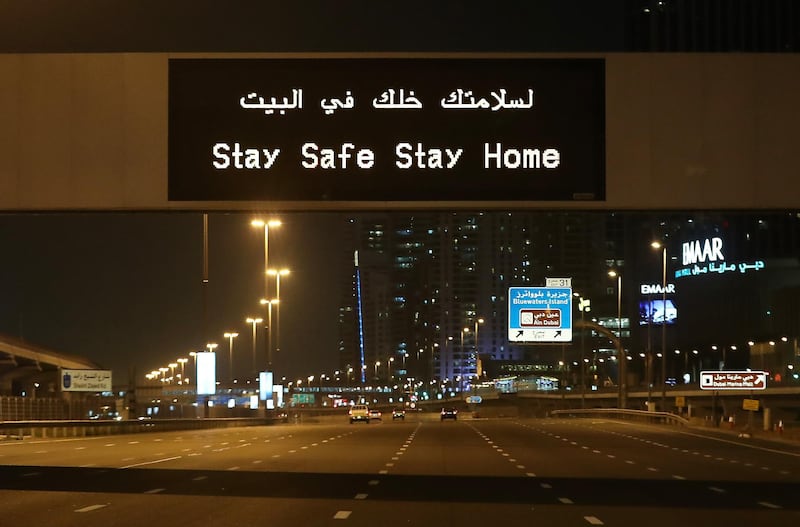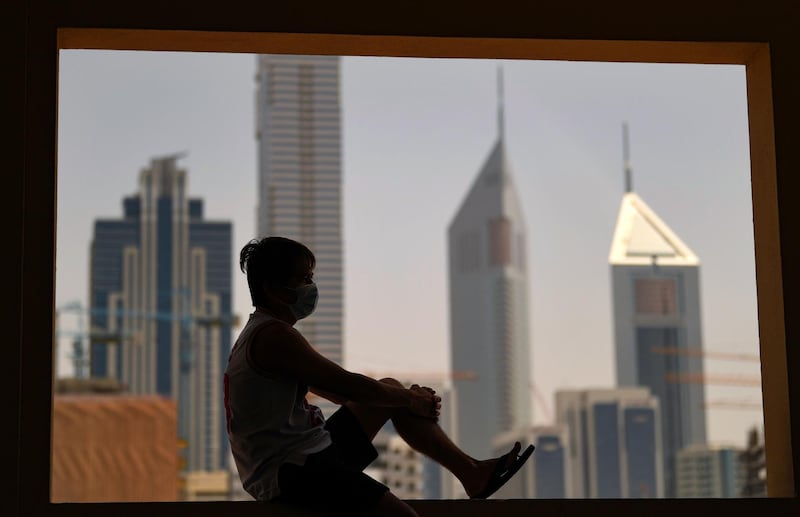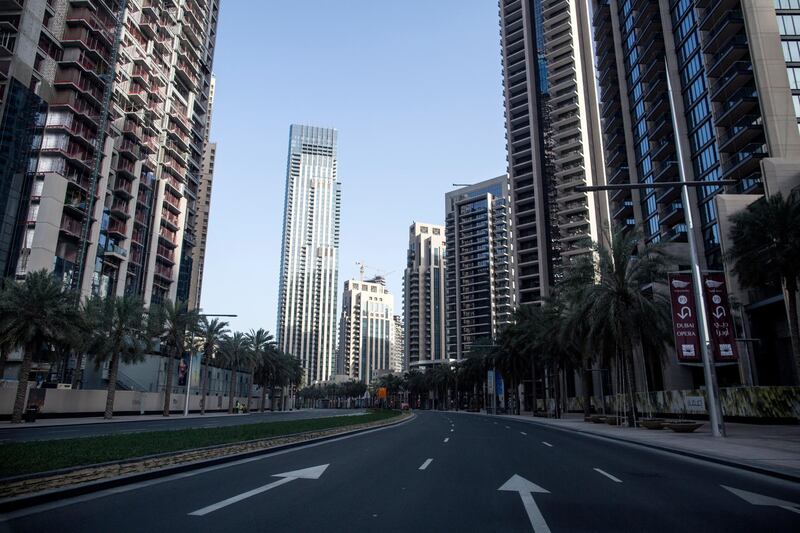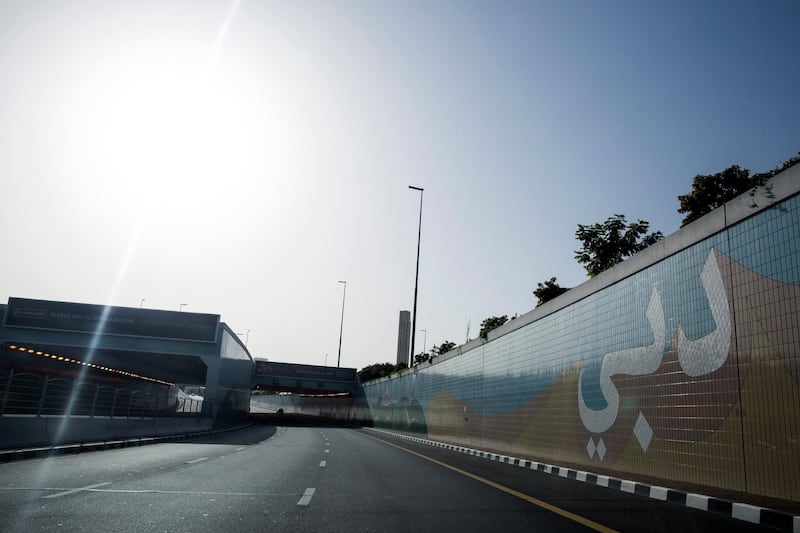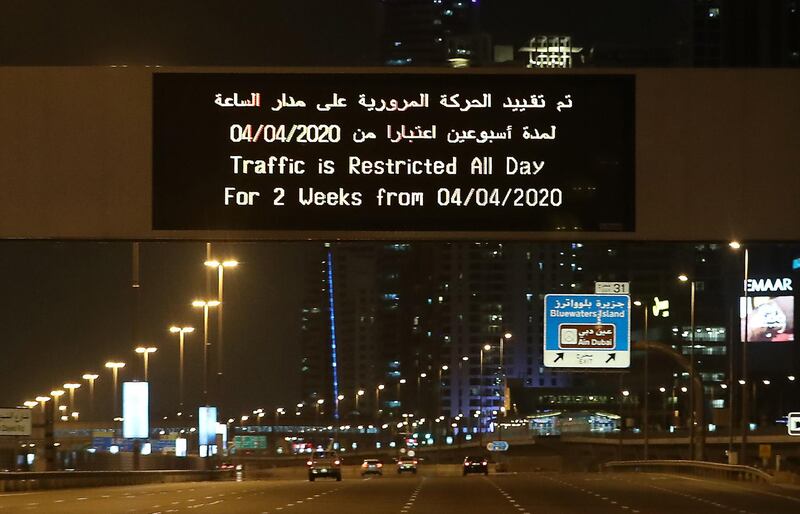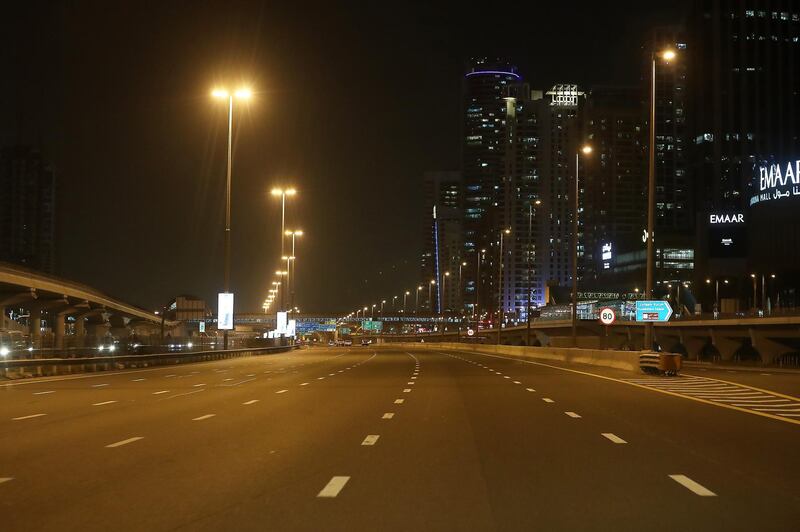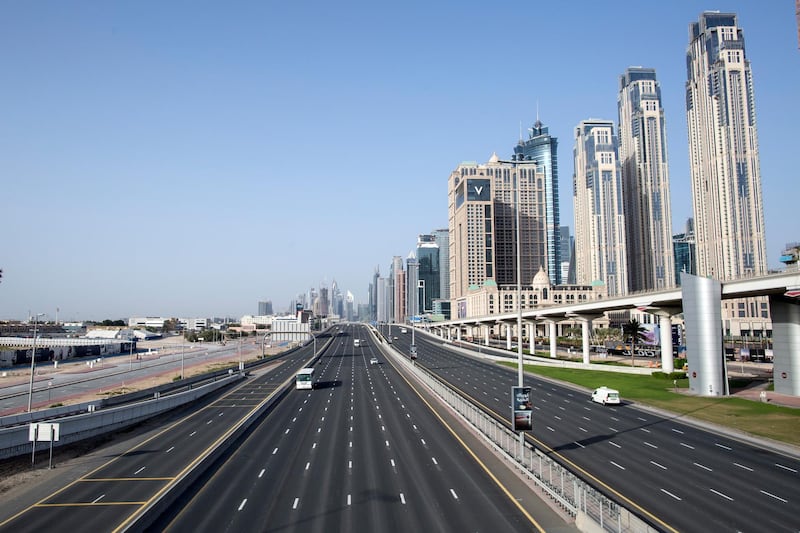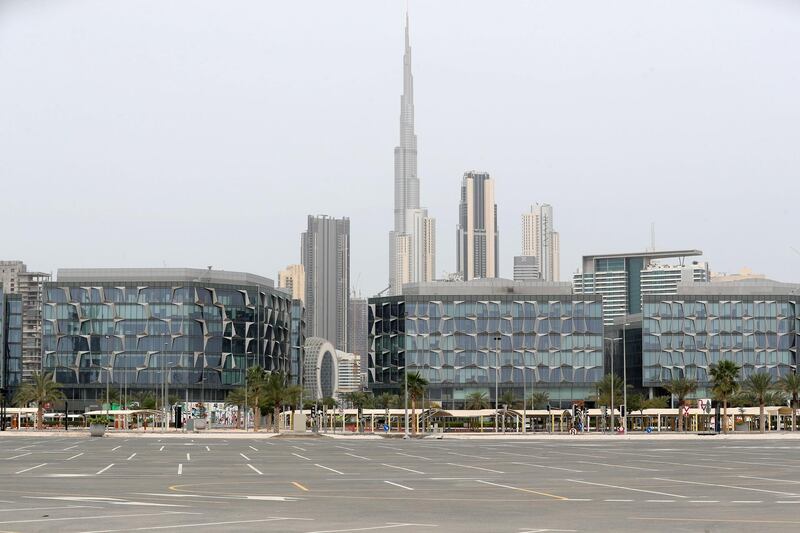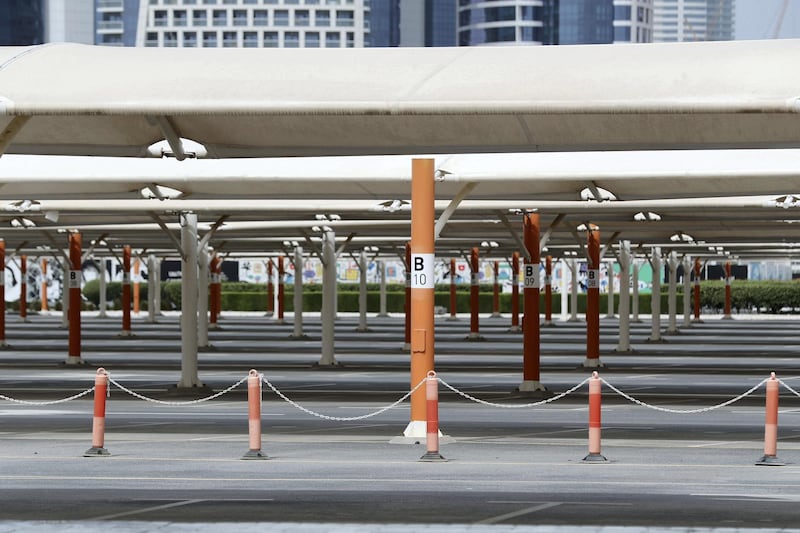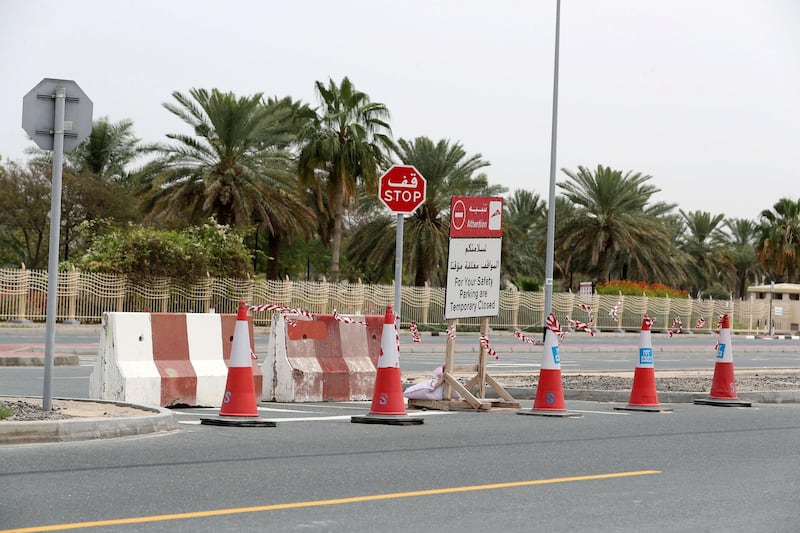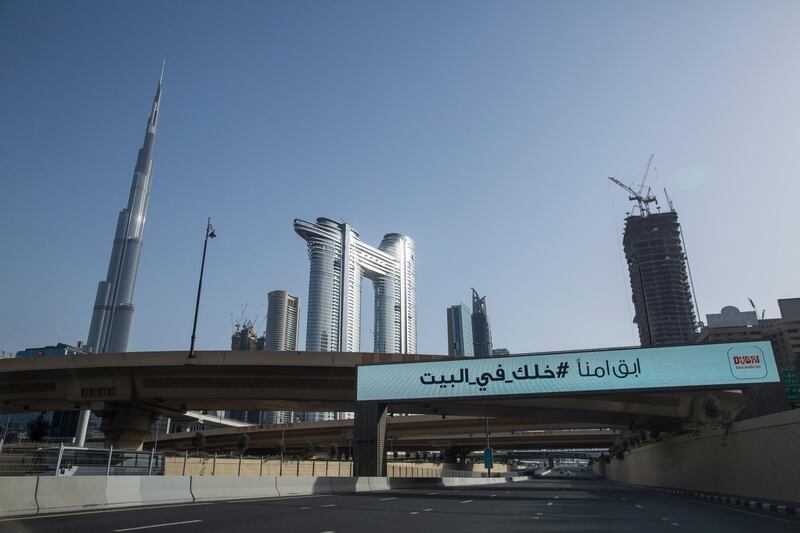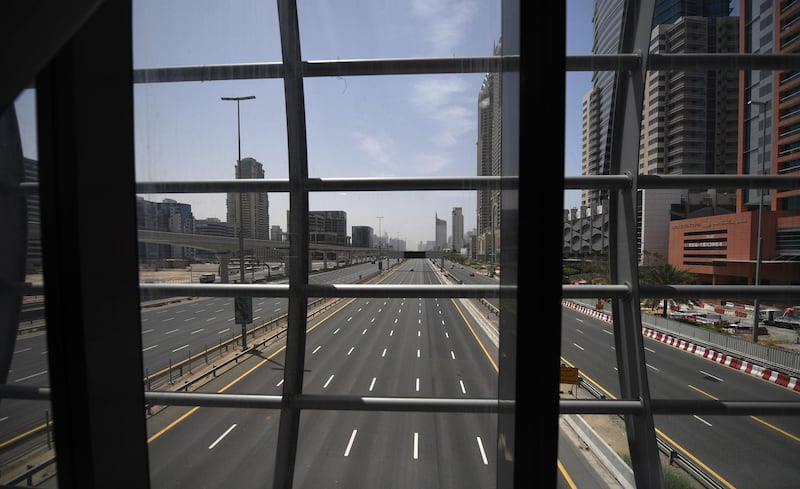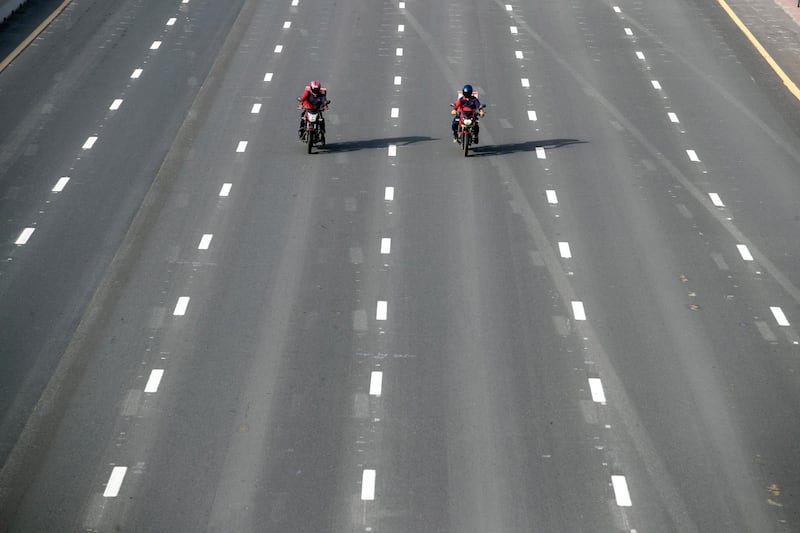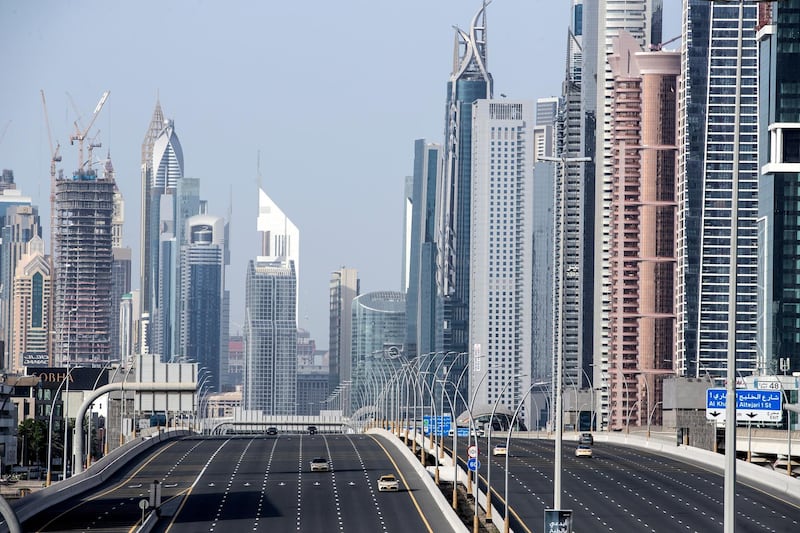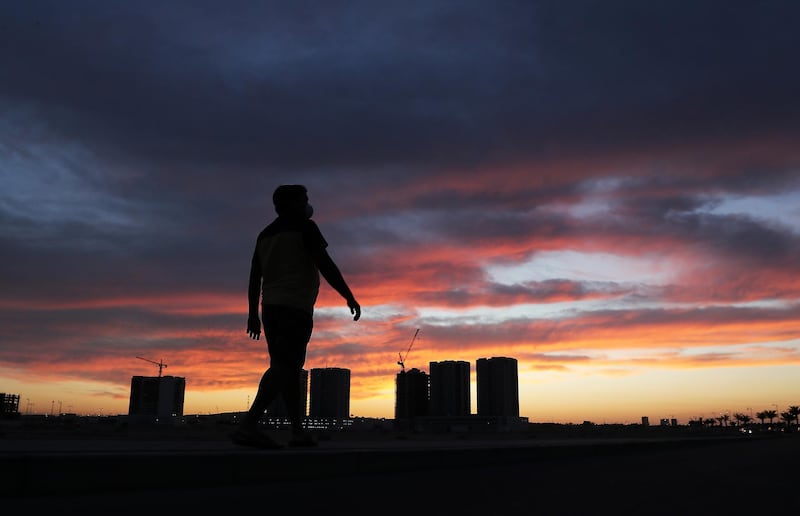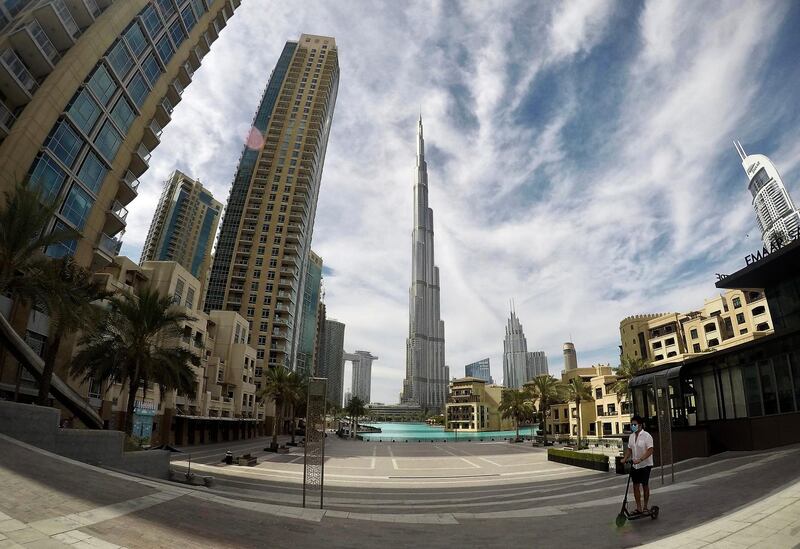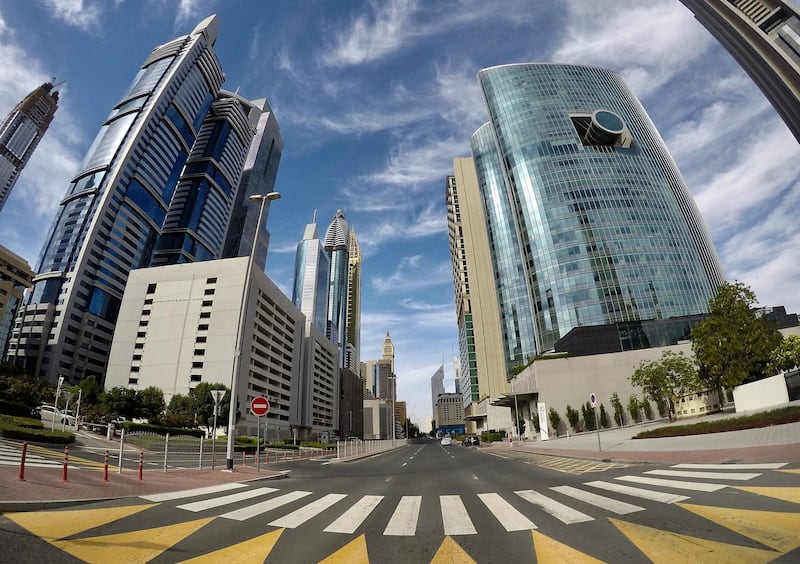Dubai is building two field hospitals that will be able to cater to “thousands” of coronavirus patients, as a precaution against a potential surge in cases.
On Thursday, Humaid Al Qatami, director general of Dubai Health Authority, said the emirate had comprehensive plans in place for “all scenarios” and was well prepared, should the number of Covid-19 cases drastically increase.
He said hospitals in Dubai currently had between 4,000 to 5,000 beds available for coronavirus patients but that authorities were “prepared to help 5,000, 10,000 or, god forbid, more than that.”
Mr Qatami said Dubai had already increased its hospital capacity in preparation for the current outbreak but that the emirate was also “doing something none of the rest of the world is doing”: keeping quarantine patients in 5-star hotels.
Anyone who comes into contact with someone who tested positive for the virus or developed symptoms are being told to self-isolate for two weeks. Those who live in densely populated areas or have numerous flatmates or share their home with their family may be transferred to a hotel instead. Anyone who has travelled into the country during the restrictions on flights will also be placed in a hotel for two-weeks under quarantine.
Mr Qatami said these hotels could also be converted into hospitals, if needed, to increase the emirate’s bed capacity.
“When it comes to the increase of hospital surge capacity, we are prepared for all scenarios. We have put an integrated plan in place for all hospitals,” he said.
Since the pandemic broke out in the UAE, businesspeople, companies and hotels have donated money, food and buildings to help the government combat the virus.
“We would like to thank hotels and businesses for donating their buildings as medical centres for quarantined people and these can be transferred into hospitals if needed,” Mr Qatami said.
During a live press briefing, Mr Qatami said more than 250,000 Covid-19 tests have been carried out in the emirate.
In densely populated areas, including Al Ras and Naif, authorities have been carrying out intensive testing campaigns to ensure any patients are isolated and treated.
“We are providing tests in residential units for expatriates and Emiratis too,” Mr Qatami said.
Anyone who believes they may have the virus should call the hotline and medical staff will come to their home to test them, before isolating them. Their roommates, if they have any, will also be monitored and anyone the person came into contact will be asked to self-isolate for two weeks.
If the person is found to have Covid-19, they will be brought into a hospital for treatment. Their residential unit will also be sanitised, said Mr Qatami.
